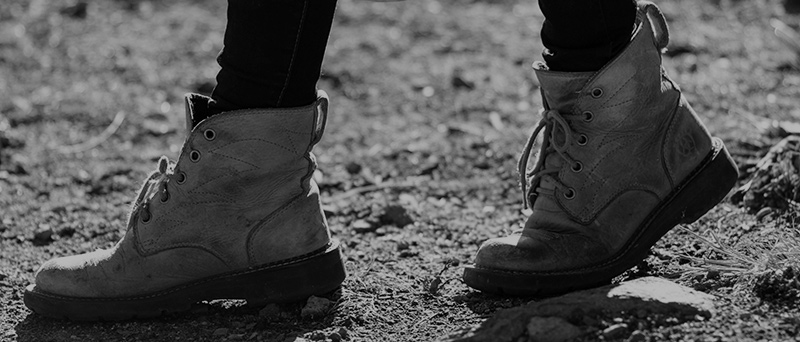
“So…what are you, then?”
As a young Christian, I received this question about my sexuality frequently. My favorite tactic was to respond with a quick joke, diverting and diversion holding hands. The reality was, I didn’t know what words to use. Nothing seemed to fit. Then again, when had it ever?
As a kid, I had always enjoyed the company of boys. But when early adolescence crept up, my female friends began discussing boys as well. Crushes, cuteness, who to dance with – this was my normal milieu and I jumped in. My first true boyfriend was someone I really enjoyed as a person, but when talking to my friends I exaggerated how much I enjoyed our proto-sexual contact. Maybe enjoyment would come with time? Maybe I was just too new at this?
At 15 I met my first girlfriend. The very first night we spent time together was pure business– she was a senior who needed help studying for an exam, and I was a sophomore willing to help because she seemed cool. High school logic. That very night, going over European history in her home, I discovered something more than friend chemistry. It’s not hard to pick out a pretty girl, but the effect of her beauty was drawing something new out of me. As I cast around for words, all the best one seemed to come from the language of crushes my friends had on guys.
I spent about a week puzzling over this. Was it wrong to feel this way? Culturally I picked up that it wasn’t normal, but I couldn’t find any logic to back up why that would be. I don’t remember whether I even thought about what that attraction said about my orientation. All I knew was that I wanted her. When we ultimately decided to form a romantic and sexual bond, I felt finally and profoundly at home. All the questions that sexual contact with guys had raised felt answered in these new experiences.
Arriving at college, I had confirmed the hypothesis several times over. What if it was just that one girl? It wasn’t. What if it was just that I hadn’t had “real sex” with a guy? Nope, it wasn’t that either. I knew I wanted to spend my life with a woman, to eventually find myself a wife.
Yet I never felt like the label “lesbian” fit me. One night in the Women’s Center on campus, a friend pressed me on this – if I was exclusively attracted to women and only wanted to seek out women partners, what was my hang up? Certainly the word for that wasn’t “straight.” Indeed not. Yet lesbian seemed to carry much more with it than just romantic and sexual attraction. It felt more like a whole outlook, a label that included certain political and social leanings that just didn’t feel like me. Bisexual didn’t feel accurate either – yes, I had had sexual experiences with men, but I didn’t long for them. I wanted men as friends, full stop.
So I was in a no-woman’s land. And before I had a chance to resolve it, Jesus Christ invaded my life, triumphantly taking enemy ground.
My first months of Christian life were exhilarating, freeing months. Yet my attractional patterns did not change – I was drawn toward friendship with any gender, but romantic and sexual pull remained towards women. As I shared my story of coming to Christ, my listeners naturally wanted to know what became of my sexuality. Was I straight now? Certainly not. But now even more words like lesbian and gay seemed out of bounds – my attractions may not have changed, but I was fighting for my choices to transform, because I believe the Bible is clear that God’s vision for sexuality is reserved for male-female marriage.
The no-woman’s land of language remained. Instead of using a single word, I would cough up a paragraph. How could my history and reality be confined to such a small band? Don’t we all deserve context and nuance?
Because God is kind and has a great sense of humor, not many years later I decided to marry a young man. While the pull of my flesh remained towards women, by God’s grace I discovered and nurtured an attraction and sexual connection with my husband. Was this one relationship enough foundation for the word straight? It didn’t tell the full story; the problems with lesbian and gay remained.
The truth was, independent of the questions being asked of me, I never internally felt the need for a one-word answer to the question of my sexuality. I was comfortable in my skin – not proud of my past, but secure in my present and future because of Jesus Christ. Yes, my attractions to women persisted. But that part of my life was so small compared to all that I was engaged in, all that stirred my thoughts and emotions. Like all faithfully married people, I sought to take every thought that was not directed towards my spouse into captivity, redirecting my energy and hope towards God and the good gift he had given me. So in this period, when people asked me what I was, I just answered “married.”
Being a Christian was the controlling value of my life, and underneath that, being married was the controlling reality of my sexuality. A beautiful, healthy constraint. If I’m honest, it’s still my favorite single word for this category. But it too has its limits.
The word married is true, but it can also unhelpfully conceal. My sexual attractions are not the most important part of me – but at this moment in culture and the church, they’re not an unimportant part of me. The people of the church have in the past, and today continue, to act disgracefully towards gay and lesbian people. There are stereotypes and misinformation still running strong in the Christian bloodstream, malignantly. In the world too, misinformation and stereotypes about Christians abound among people who identify on the LGBT+ spectrum – and often for good reason.
It needs to be seen that people like me are in the church, are in Jesus Christ, and are thriving. Not a myopic vision. Not a one-story-fits-all air-brushed narrative. No, a true accounting of our presence, our joys, our giftings and our needs. Somewhere along the way I stumbled onto “same-sex attraction,” and began to use it. I don’t remember where. And I’ve since learned that it too has its own baggage. But for now, it’s the phrase that I put on when I need it – it feels like a decent enough fit. It describes my internal pulls without stating automatically anything else about me.
It’s not comfortable like worn-in jeans perhaps, but sturdy like a set of work boots. And we’ve got work to do.
Check out Grace/Truth!
A small group learning experience designed to help Christians engage in conversations about faith, gender, and sexuality.

